[ESP | ENG] Preparando Cachapas al estilo del oriente venezolano 😋 Preparing Cachapas in the eastern Venezuelan style
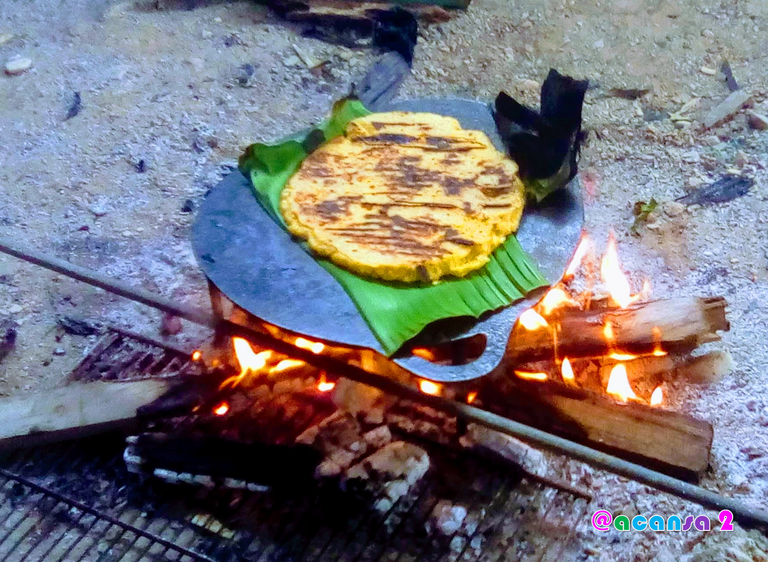
La cachapa es una especie de pan de origen venezolano, elaborado con maíz tierno.
The cachapa is a kind of bread of Venezuelan origin, made with tender corn.
¡Saludos a todos! Deseo que en este nuevo año Dios conceda las peticiones de sus corazones conforme a su voluntad, que abra caminos en donde no los hay y que los haga prosperar en todos los aspectos de sus vidas.
Greetings to all! I wish that in this new year God will grant the requests of your hearts according to his will, that he will open roads where there are none and that he will make you prosper in all aspects of your lives.
Esta es mi primera publicación del año y la quise dedicar a un alimento delicioso, preferido por la mayoría de los venezolanos y del que solemos compartir con familiares y amigos. Se trata de la cachapa, que no es más que una especie de pan, elaborado con maíz tierno y al que se le agrega azúcar y sal. Tradicionalmente se unta con margarina o mantequilla y se rellena con queso blanco . En algunas partes del país se acompaña con aguacate, carnes de cochino frita o chicharrón./div>
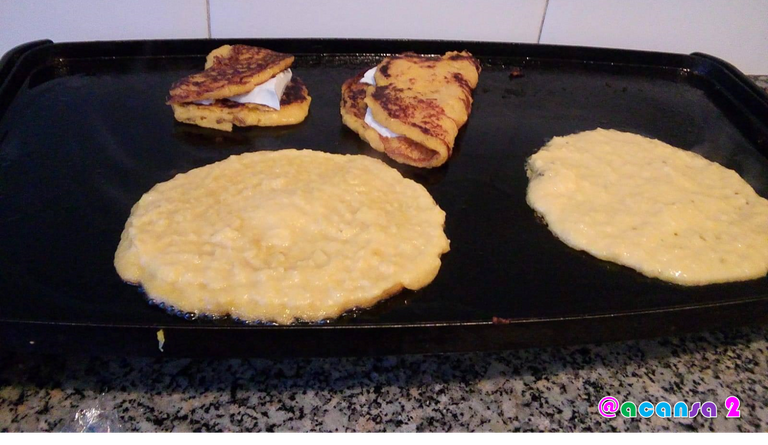
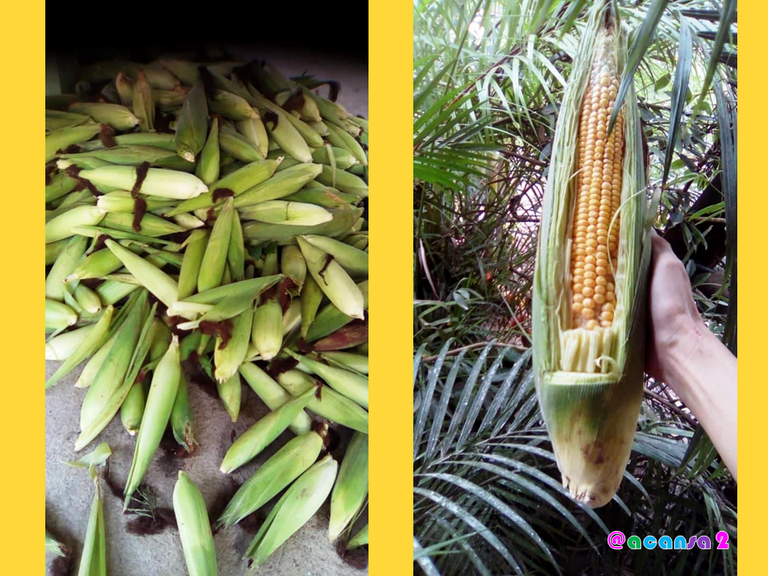
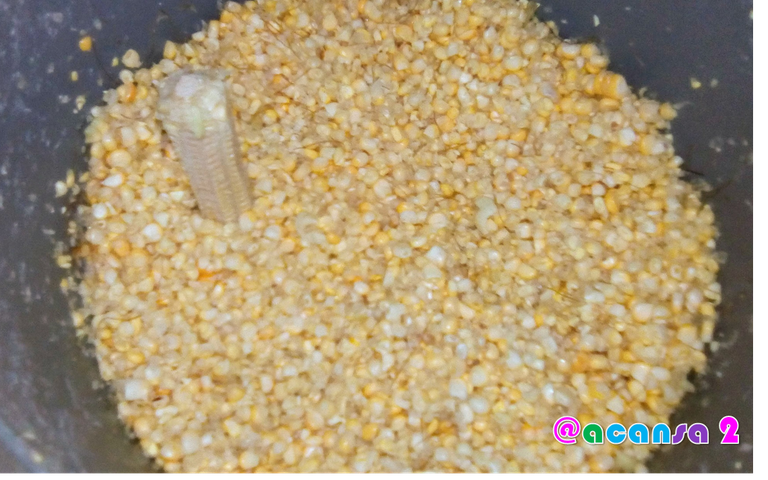
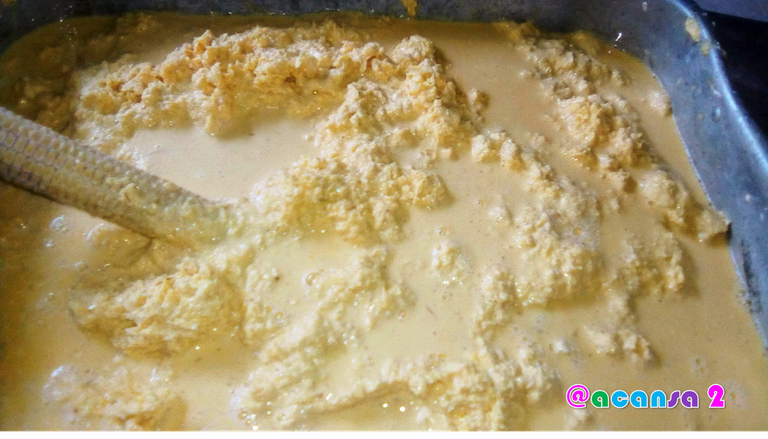
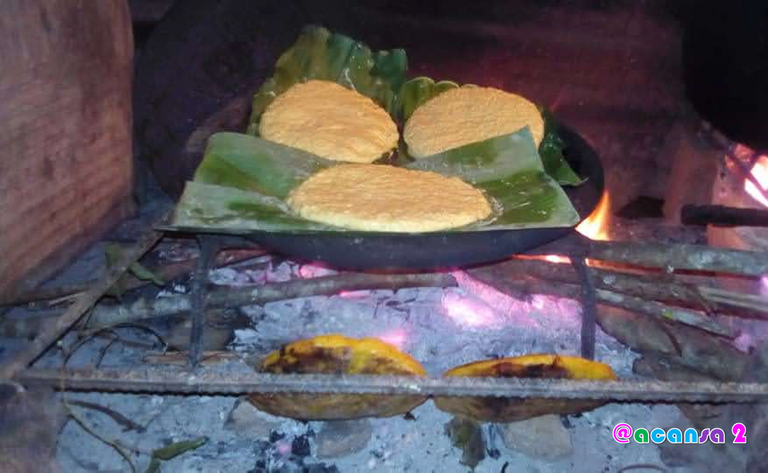
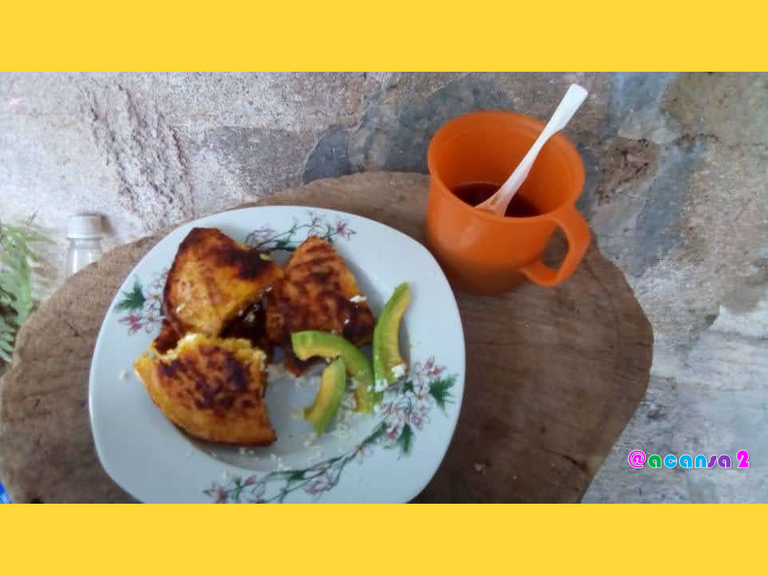
This is my first publication of the year and I wanted to dedicate it to a delicious food, preferred by most Venezuelans and which we usually share with family and friends. It is called cachapa, which is nothing more than a kind of bread, made with tender corn and to which sugar and salt are added.It is traditionally spread with margarine or butter and filled with white cheese. In some parts of the country it is served with avocado, fried pork or chicharrón(pork rinds).

La cachapa oriental es un poco diferente a la del resto del país, ya que su corteza suele ser un poco más dura. Por ejemplo en Valencia, suelen hacer las cahapas tipo panquecas, como lo pudieron ver en la fotografía anterior.
The cachapa oriental is a little different from the rest of the country, as its crust is usually a little harder. For example, in Valencia, they usually make cahapas like pancakes, as you can see in the picture above.
A través de los recursos visuales les voy a mostrar brevemente el proceso de elaboración de unas ricas cachapas cocinadas en un fogón de leña, en algún rincón del oriente venezolano.
Through visual resources I am going to show you briefly the process of making some delicious cachapas cooked on a wood fire in some corner of eastern Venezuela.
Primeramente se deshojan las mazorcas de maiz y luego con un cuchillo se cortan los granos.
First the corn cobs are stripped of their husks and then the kernels are cut with a knife.


Luego se pasa por el molino hasta obtener el siguiente resultado.
Then they are passed through the mill to obtain the following result.

Ahora toca agregarle sal y azúcar al gusto y la mezcla estará lista para proceder a cocinarla. Acá suelen utilizar las hojas de banana como base, se untan con aceite y luego agregan la mezcla y se lleva al [budare] (https://es.wikipedia.org/wiki/Budare) o aripo que ya se ha calentado previamente en la cocina o el fogón.
Now it is time to add salt and sugar to taste and the mixture is ready to be cooked. Here they usually use banana leaves as a base, spread with oil and then add the mixture and put it in the [budare] (https://es.wikipedia.org/wiki/Budare)or aripo that has been previously heated on the cooker or cooker.

Una vez listas, las rellenas como desees y podrás degustar de un alimento saludable y rico en fibra.
Once ready, fill them as you wish and you will be able to enjoy a healthy food rich in fibre.
Algunos se preguntarán porque se deja la tusa dentro del maíz, ya picado, y dentro de la mezcla. La respuesta es sencilla, es para que la mezcla de maíz no se ponga amarga y mantenga su sabor original.
Some may wonder why the tusa is left inside the corn, already chopped, and inside the mixture. The answer is simple, it is so that the corn mixture does not turn bitter and keeps its original flavour.
Es importante acotar, que si se hace con el maíz muy tierno no necesita que le agreguen leche ya que al moler el grano, este desprende una parte líquida llamada naiboa, la cual se agrega al resultado de la molienda para formar la masa. En caso de que el maíz no esté tan tieno, se puede recurrir a la leche, para que el resultado final de la cachapa, sea favorable.
It is important to note that if it is made with very tender corn, there is no need to add milk, because when the grain is ground, it gives off a liquid called naiboa, which is added to the result of the grinding to form the dough. In case the corn is not so tender, milk can be added, so that the final result of the cachapa is favourable.

Espero que hayan disfrutado de la lectura y también que hayan aprendido sobre nuestra cultura gastronómica, costumbres y tradiciones. Los espero en un próximo post.
I hope you have enjoyed reading this post and also that you have learned about our gastronomic culture, customs, and traditions. I look forward to seeing you in a future post.
0
0
0.000
I love this kind of food, especially, corn, there is no doubt that it is very tasty.
Gracias por comentar. Si que son muy ricas.
You're welcome (^_^)
Congratulations @acansa2! You have completed the following achievement on the Hive blockchain and have been rewarded with new badge(s):
Your next target is to reach 100 comments.
You can view your badges on your board and compare yourself to others in the Ranking
If you no longer want to receive notifications, reply to this comment with the word
STOPTo support your work, I also upvoted your post!
Check out the last post from @hivebuzz:
Support the HiveBuzz project. Vote for our proposal!
I love the way you make this food ,😍😍😍
Gracias por tu comentario. Esto me motiva a seguir publicando